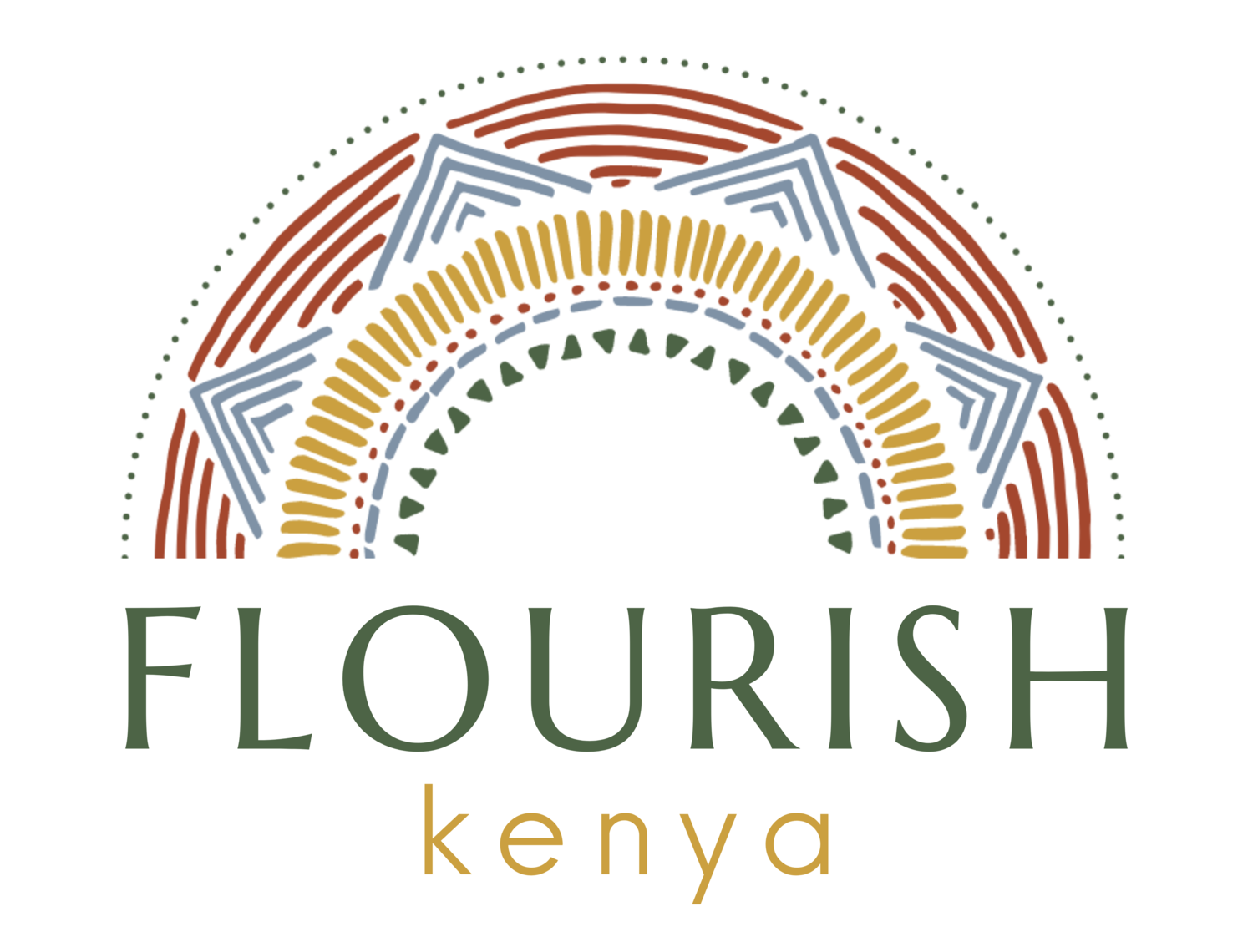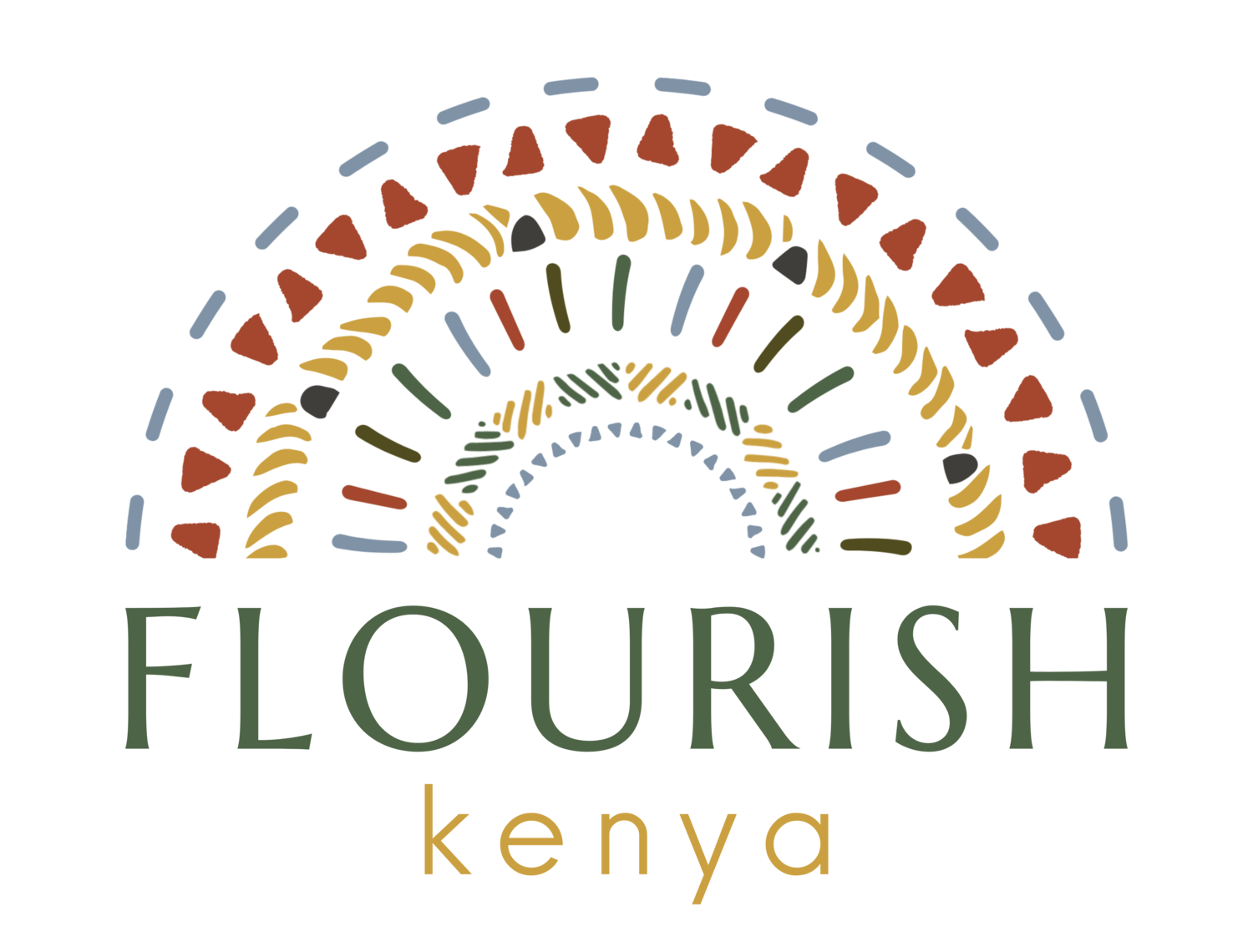We’re Going Through Some Changes
Over the last several years, Flourish Kenya has been going through some changes.
For an organization that teaches reproductive health, it’s hard to miss the parallel between the ways our human bodies and minds grow and change during puberty and how the living organism of a nonprofit develops and matures over time.
At times it has been painful, confusing, alarming, and even embarrassing. We’ve also experienced moments of wonder and exhilaration as we step back and see that we’re really growing up. All these challenges and changes are producing a more mature organization that is becoming ready to discern and begin taking real steps toward being all grown up.
How we see ourselves and our place in the world is changing. In light of all these things, we thought it best to shed some light on our coming-of-age process as an organization.
Background
Flourish Kenya has always taken the marriage of our faith-driven motives to evidence-based practices for nonprofit work very seriously. As a small, grassroots organization, we’ve always said that we don't want to reinvent the wheel if we don't have to.
Still, given the nature of our work, we have had to examine the ways things have always been done— among staff and board members, in global development, in mission work, and even in our own lives.
When we reflect on the ways and deeds of those who have gone before us, in addition to our own track record, we see that there are repeated actions and methods that aren’t beneficial to those we aim to serve. Worse yet, some are harmful to the community we love and serve.
Unfortunately, the old adage is true; hindsight is 20/20. Much of our current catalog of “wisdom” has been compiled by analyzing actions and reactions in the field. But, not all of the knowledge we gain over time has to be gleaned the hard— and often damaging way.
If we humbly position ourselves, continually remind ourselves that we don't have it all figured out, and above all, listen to understand, we can learn from those we seek to serve before more harm is done. Thus, we are going through some changes here at Flourish Kenya.
Change #1- Community-led Development
"The end doesn’t always justify the means."
Our convictions and deepest desires around how best to partner with the community in and around Kilgoris were well formed a good decade before we started hearing buzzwords in the nonprofit sector like community-led or community-driven development, decolonizing aid, and localization in aid. As much as these words are jargon in our industry, the concepts that back them up pretty well summarize the FK flavor of Christian Global Development.
If we truly desire to heed the call to honor and empower others, take care of the poor and widow, alleviate poverty, fight for justice, and spread the Gospel, then we have to be aware of how our motives, perspectives, biases, worldviews, and actions are either helping solve problems or contributing to them.
Admittedly, part of our organizational fallout of 2020 was that we drifted from our community-led ideals. Much like the challenges an adolescent faces with experiencing, interpreting, and expressing their thoughts and feelings, our organization floundered under the weight of so much turmoil and change. It wasn't intentional, but the consequences have become clear.
Due to a gradual and nuanced slide into an imbalance of power between the US and Kenya, communications and relationships were strained. Everyone was left frustrated, discouraged, and unsure of what the future would hold for Flourish Kenya. Add to professional struggles the myriad of personal challenges our staff and board have faced, even just in the last year, and you have some cleaning up to do.
After evaluating every inch of the organization and seeking the Lord for direction, the solution to the complicated and interwoven problems we were facing as an organization became clear.
The way to get back on track was to get out of the way.
A community-led model for an outside funding entity is codified by all decisions around strategy, mission, vision, and methods directed by the beneficiaries the organization serves. The funders provide general oversight and guidance, set up structures that ensure transparent financial accountability, and generate awareness and funding support.
For Flourish, this means not just talking about being a community-led organization or encouraging our beneficiaries to take the lead. It means we have to actually step back and shift the power back to Kenya. It means we have to put policies in place that position the local stakeholders at the helm of the ship.
Flourish Kenya's community-led model looks like the US waiting for Kenya to give direction instead of the US determining and dictating what Kenya “needs” to do. Our priorities and responsibilities are solely focused on generating awareness and funding support that will allow the leaders in Kenya to continue doing what only they can do for their own community.
Our only other duty is to remain compliant with US laws and regulations and provide accountability and communication to our donors, which requires a certain level of documentation and reporting transmitted from Kenya on a regular basis.
And that’s it. Other than that, it is our duty to remain prayerful. And from that posture, we are ever seeking knowledge and wisdom and staying cognizant of the implicit power dynamics at play.
Change #2: Same Direction, New Focus
"The way it's always been done isn’t always the right way."
Flourish's mission has always centered on protecting teens in crisis with a vision for girls to be rescued from circumstances beyond their control. The impetus for our initiatives began with unity in the Holy Spirit between our founding partners in Kenya and in the US. In the very beginning, the prod to action was one skyrocketing statistic that not only connected our personal stories but also spoke to the complexity of the challenges our brothers and sisters were— and still are facing. The teen pregnancy epidemic. Who can stand by and do nothing when 4 out of every 10 girls between 10 and 19 years old are giving birth for the first time?
The vision that has always propelled our mission has taken a backseat over the past several years while we worked on preventing unplanned adolescent pregnancy and rising rates of HIV/AIDS through our Sexual and Reproductive Health (SRH) Education Program.
Recognizing that “it takes two to tango,” so to speak, led to discovering that boys were also in great danger of losing agency over their futures and were frequent victims of domestic and sexual violence. They, too, were woefully deprived of factual information about their bodies and, along with girls, suffered greatly in the case of a consensual sexual encounter leading to unintended pregnancy and therefore are included in our secondary school sponsorship program.
While both our SRH Education and Vulnerable Student Sponsorship programs are hugely successful and are preventing teen pregnancy in our partner schools, there is still a massive gap in crisis assistance services for children and teens in Kilgoris.
Over the last six years, we’ve dug deep into the pit of swirling issues tied to teen pregnancy. With that, we’ve paired in-depth outside learning and research with the data we’ve collected in the field and the input we’ve received from the communities where Flourish is active.
We have identified that the socially accepted practice of “early marriage”, which is largely perpetuated by poverty, is only a mask for the evil that is more accurately named child trafficking.
Forcing a child to be married in exchange for payment by a dowry system is selling underage girls into sexual servitude, the onset of childbearing, and the weight of a family’s survival.
In rural Kenya, the number one risk factor for being trafficked in this way is Female Genital Mutilation (FGM). This “rite of passage”, often violently forced on children, serves as a signal to the community that a girl is eligible for marriage.
And now, what do you think are the top two root causes of teen pregnancy in rural Kenya?
That’s right. Child marriage and FGM.
The flaring symptom of teen pregnancy has revealed a deeper problem.
These horrific abuses are happening at alarming rates in the surrounding villages of Kilgoris. Girls are fleeing their homes and hiding in the wilderness with wild animals or in the dangerous dark corners of town to prevent these acts from being forced on them.
Someone has to do something to protect these kids.
And that someone is Flourish Kenya.
It’s you.
It’s all of us.
Given our stance on what is and isn’t our place in this work, you might be asking, “Who are we to show up and try to change a culture?” Great question! We ask ourselves that one all the time!
To be clear, these practices are largely driven by poverty. Families in desperate circumstances know that when all else fails, they can marry off a daughter. She’s one less mouth to feed, and in exchange for her person, they will receive temporary relief in the form of livestock, crops, household items, and sometimes even cash from the family of the man who is claiming her— sometimes a much older man.
Those in the community who have identified the injustices wrapped up in these “traditions” have made their desire for changes known. From village elders to church leaders and even private interest groups of young adults— the call for action is loud and clear. Even the Kenyan government has outlawed the practices of child marriage and FGM.
What our partners in Kilgoris are working toward and pleading for assistance with is developing a system for services that protect teens in crisis.
Kenyan laws and regulations around care for vulnerable children have changed and developed for the better since our inception. While we’re grateful for systemic changes that protect children, they have kept our model in a holding pattern.
In God’s timing and with the guidance of local experts, the full model is finally unfolding.
As details continue to develop, and for the safety of the girls, we can’t share everything, but here is what the Board in Kenya has made clear so far:
We will develop on the plot of land that FK currently owns
We will provide rescue, rehabilitative (counseling, spiritual care, medical care, etc.), and reintegration services so that girls are able to enter back into the community when they are ready.
We will continue all of our outreach and advocacy services in the schools and the community with our SRH Education and auxiliary programs (Flourish Camps, Alternative Rite of Passage Seminars, Girls Mentorship, and Anti-FGM advocacy).
We will continue to sponsor students for secondary school— a key prevention measure for every adverse outcome we’ve discussed here.


